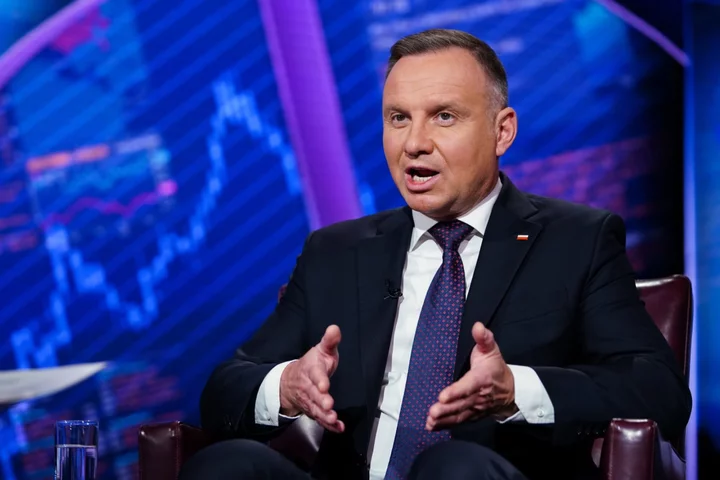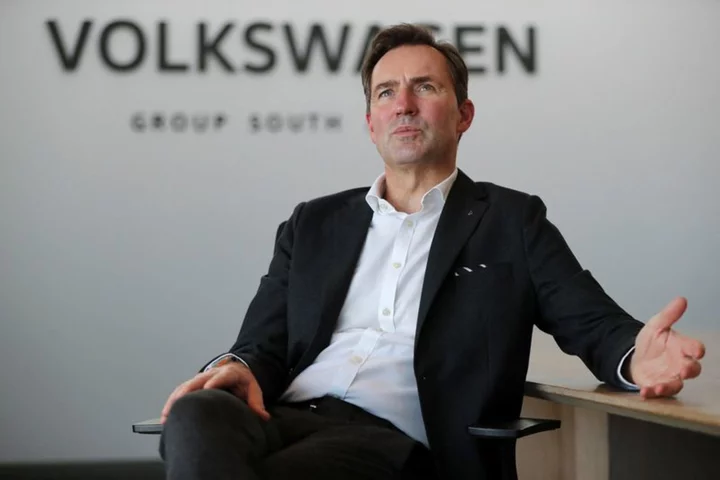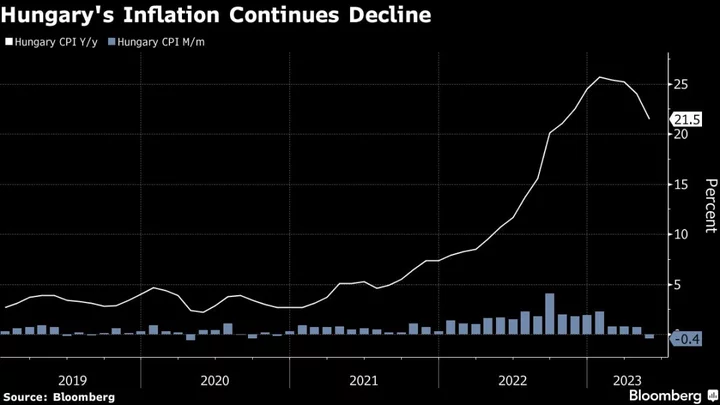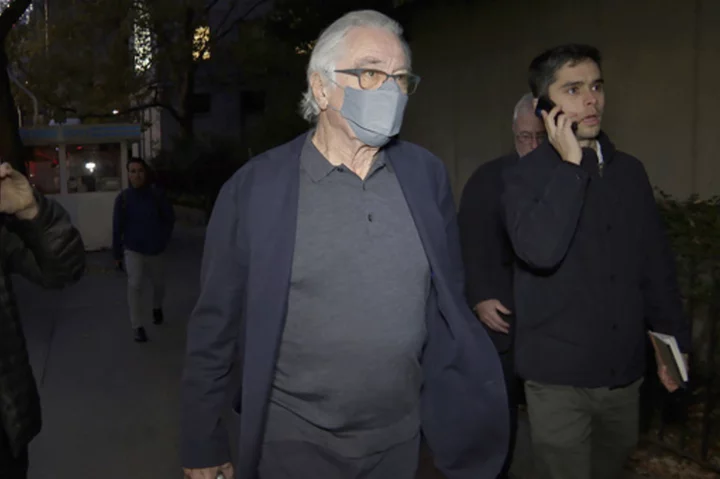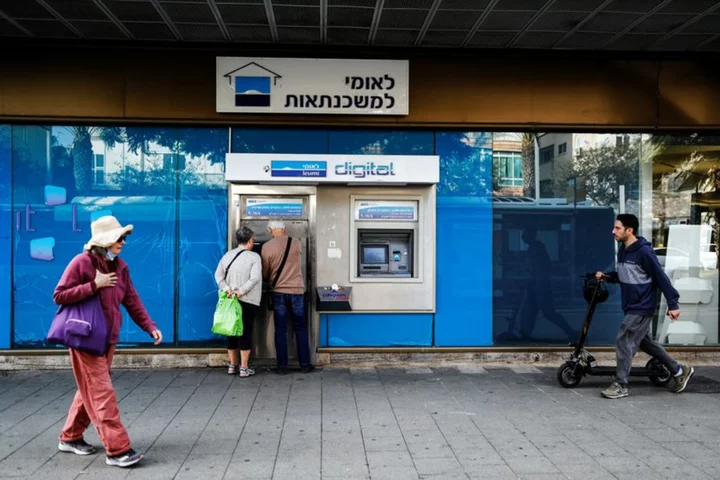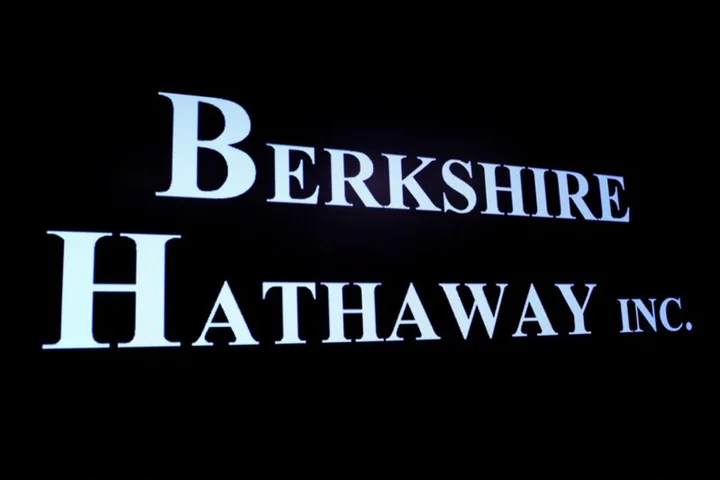Polish President Andrzej Duda criticized Ukraine for its handling of a dispute over imported grain, adding to strains between two countries whose alliance has been central to the push to repel Russia’s invasion.
The escalating clash raises the stakes for Ukraine just as it presses ahead with a grinding counteroffensive to retake occupied territory. Poland has been the primary destination for refugees fleeing the war and about 90% of all the aid and military equipment headed for Kyiv passes through its territory.
“We cannot allow that Ukrainian grain is sold on the Polish market without any control,” Duda said in an interview Tuesday on Bloomberg Television with Annmarie Hordern. “We also have our own citizens, we have to care for their interest.”
“It’s a pity our Ukrainian neighbors don’t want to understand that,” he said.
The grain disagreement has grown in intensity and significance after Warsaw extended a ban on crops from its eastern neighbor in a push to placate its farmers, whose support will be crucial in parliamentary elections next month. In response to such moves, Ukraine filed a World Trade Organization complaint against Poland, Slovakia and Hungary.
Read More: Ukraine Reaps a Big Harvest, But War Risks Trapping It at Home
Duda’s remarks were prompted in part by comments President Volodymyr Zelenskiy made earlier Tuesday on X, the social media platform previously known as Twitter. He accused “some in Europe” of “turning grain into a thriller.”
“They may seem to play their own roles,” Zelenskiy wrote. “In fact they’re helping set the stage for a Moscow actor.”
Events at the United Nations General Assembly on Tuesday also suggested the strains were growing. Duda had said he planned to meet Zelenskiy on the sidelines of the UN gathering in New York, only to say later that scheduling conflicts made a meeting impossible. The meeting was never confirmed by Ukraine, according to a person familiar with the protocol, who spoke under condition of anonymity because the talks are private.
That stood in contrast to the unity that had defined the two leaders’ relationship before the grain dispute. They had regular phone conversations in the first months of the war. In April, Duda stood alongside Zelenskiy in Warsaw and vowed that Russia would never drive the neighbors apart.
Read more: Ukraine Files Complaint With WTO on EU Neighbors’ Grain Ban
While Poland has closed its own market to grain imports from Ukraine, the country still allows for transit through its territory, which Duda said has doubled in volume this year. Ukraine endorsed a mechanism on Tuesday to control the exports of four key crops to its neighbors in the EU. Romania, which also restricted Ukraine’s grain imports, has said the proposal meets its demands and didn’t impose a unilateral ban.
“Personally, I regret there is a discussion going on in the media,” Duda said. “I’ll try to cut it off for sure because someone needs to be wiser here, and the situation isn’t easy.”
The back-and-forth signaled that what seemed to be a relatively minor disagreement has ballooned into something larger. If it gets any worse, it could have direct implications for the war given Poland’s place as a key transit point for weapons and aid.
For Poland, the issue is a political one. The ruling Law & Justice party, seeking a third term in office in an election slated for Oct. 15, is reluctant to alienate its rural voting base — including farmers who make up a crucial voting bloc — while growing discontent over the cost of supporting Ukraine has boosted the party’s opponents on the far right.
In addition to serving as a major source of military assistance to Ukraine, Poland has accepted about two million refugees from Russia’s invasion. In a further ominous sign, Poland’s government said Monday it may not extend support for the refugees next year.
In the interview, Duda said there were “many different problems,” including “people-to-people problems.”
“Of course, there is a phenomenon of a certain fatigue,” he said. “But it’s normal, it’s just human. A lot of Polish people have sacrificed a lot to help their neighbors from Ukraine.”
--With assistance from Kasia Klimasinska, Andrea Dudik, Michael Winfrey and Piotr Skolimowski.
(Updates with details.)

